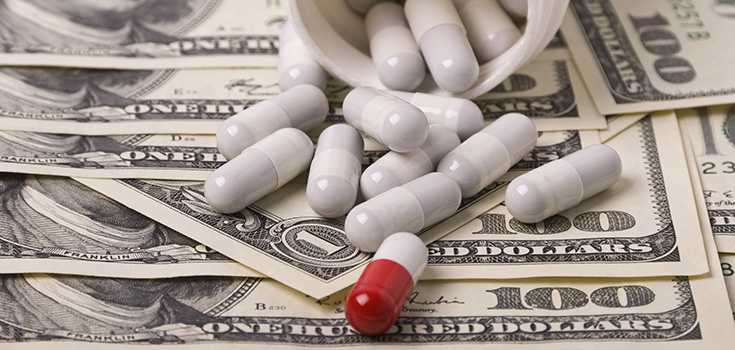Needless Diabetes-Linked Antibiotic Prescriptions Cost NHS $10 Million Per Year

Antibiotics are not only breeding illness among the population, but are also so vastly over-prescribed that it is costing the United Kingdom’s National Health Service (NHS) the equivalent of over 10 and a half million dollars per year. According to new research, doctors are dishing out more than 1.6 million unnecessary antibiotic prescriptions for common ailments such as sinusitis and acute coughs. The result: an unnecessary and massive financial hit.
Conducted by researchers from Cardiff University and led by Professor Chris Butler, the two-year study worked with 68 GP practices in Wales. Finding that antibiotics were needlessly given to patients without effect, doctors were provided data that could limit the massive prescription count.
Given data regarding antibiotic prescribing methods and resistance data, the researchers concluded that even a 5.5% reduction in antibiotic prescribing could save over $1,000 per individual practice — and cut over 2 million dollars per year in worthless antibiotic prescriptions.
Widespread Prescriptions, Massive Adverse Reaction
The high volume of antibiotic prescriptions — deemed needless or not — are heavily contributing to the illnesses many individuals are facing on a daily basis. This has to do with how antibiotics impact not only the ‘bad’ bacteria that could be making you sick, but also the ‘good’ bacteria that actually prevent illness and maintain gut health.
Of course destroying the bad bacteria is good, but the negative effect on your gut health that results from antibiotics is quite serious. Your gut is a central function of the immune system, and when compromised your body’s “security system” begins to weaken.
It is thanks to this reason that antibiotic use has been linked to mental illness, a condition that is sweeping individuals worldwide. This is due to the fact that the brain may be directly influenced by gut health, which suffers from the usage of these pharmaceuticals.
Furthermore, antibiotics have been linked to other conditions ranging from obesity to diabetes. A study conducted in April 2011 involving Dr. Blaser found that people treated with antibiotics had a 6-fold increase in post-meal ghrelin, a 20 percent increase in leptin levels, and a 5 percent increase in body mass index 18 months after completing the course of antibiotics.
What does this mean? Ghrelin stimulates the brain in such a manner that leads to not only increased appetite, but also particularly leads to the accumulation of fat in abdominal fat tissue. This type of fat is associated with metabolic syndrome and an increased risk of diabetes.
Antibiotics are not something to needlessly prescribe. With countless unnecessary antibiotic prescriptions taxing not only the financial health of world governments but also your personal health, it is quite apparent that antibiotics are nothing to give out without at least careful consideration.
